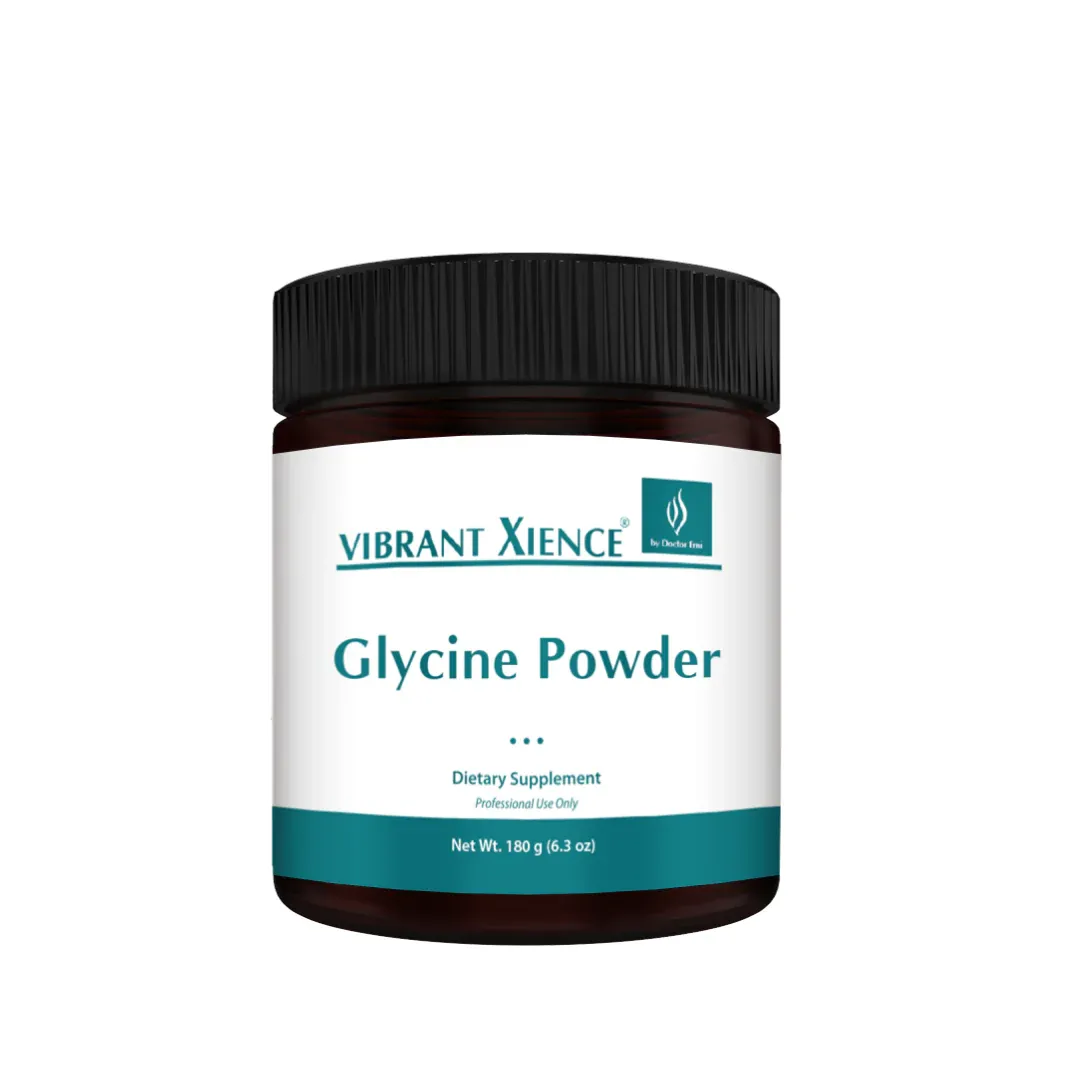The amazing amino acid, glycine (one of the building blocks of protein), acts as a protectant against free radical damage in intestinal cells.1 Free radicals are atoms missing an electron which bump into things trying to gain an electron and stabilize themselves. As they do this, they cause damage to whatever they bump into and destabilize it. My analogy for a free radical is a teenage boy without a date on prom night bumping into multiple people. Glycine helps protect the gut against this type of damage. Glycine also acts as a calming neurotransmitter (messaging molecule) in the brain.2 Glycine is synthesized (produced) by the body, but many times not enough so to help relieve anxiety and sleeplessness. In our technology-driven society, many people find themselves not only eating poorly, but also unable to mentally “switch off” at the end of the day. Did you know there is actually a connection between the types of microbiota (microorganisms) in the gut, and the health and activity of the brain? This connection is complex and affects a myriad of disorders.3 Remember, eating a balanced diet rich in colorful vegetables and some fruits is always the most important and basic rule for good gut-brain health.
Glycine and Gut Health
If you’ve followed our blog posts, and others out in the blogosphere, you’ve no doubt read about the human microbiome, what you can do to improve your intestinal microecology and thus, your immune system. The gut (the seat of the immune system) is lined with epithelial cells which continually shed and are renewed.4 Serving as a building block for making proteins, the amino acid, glycine, acts as a protective agent of intestinal epithelial cells by curbing free radical damage.5 Glycine is showing a great deal of promise in the area of Inflammatory Bowel Disease (IBD) and colitis as it has been shown to alleviate diarrhea,6 and protect against damage from sepsis, inflammation, and ulcers.7
Glycine and Brain Health
Because it is an inhibitory (calming) neurotransmitter, glycine can help induce a calm mood, and enhance sleep. It also aids in other cognitive functions.8 One study showed anxiety in animal models was associated with decreased release of glycine from the hippocampus region of the brain, whereas the inverse evoked an anti-anxiety effect with no loss of motor coordination. Glycine could very well be part of a new generation of future natural anti-anxiety aids – without the side effects that are common in benzodiazepines (drugs such as Valium and Xanax).9 Glycine has been shown to be helpful in some of the symptoms of schizophrenia.10 In a study for treatment-resistant schizophrenia, the people with the lowest baseline (starting) glycine levels who had glycine added to their regular treatment regimen had the “greatest reduction in negative symptoms.”11
Glycine Sources
While meat, fish, dairy and legumes12 contain glycine, many people still do not get enough; and of course, many people cannot tolerate dairy, and/or don’t eat meat. Dietary supplementation of glycine has helped many of my patients with anxiety and sleep problems, as well as people with bloating, gas, and intestinal irritability. Glycine may help improve some of the symptoms associated with irritable bowel syndrome.
Doctor Emi’s Glycine Powder offers the amino acid, glycine, in pure powdered form – which allows for flexible dosing as well as convenience. Glycine Powder has a neutral taste, and quickly and easily mixes with water or any other beverage. Glycine Powder is vegan, non-GMO, soy free, gluten free, and is made in the USA in a GMP-compliant facility. Being able to calm down, relax, and finally “switch off” at the end of the day is extremely important for your overall health. Along with good sleep hygiene (i.e., switching off ALL devices, and avoiding caffeine when it’s close to bedtime), Glycine Powder can help support relaxation, healthy brain function, restful sleep, and can also help with mood support in those with anxiety.
Please remember to first discuss dietary supplementation with glycine (or any other dietary supplement you take, or wish to take) with your physician as dietary supplements can react with medications as well as with one another.
The Doctor Emi Team





